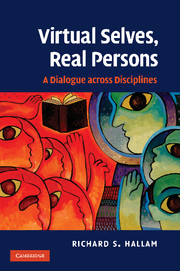Book contents
- Frontmatter
- Contents
- Acknowledgements
- Part I A constructionist framework for person and self
- Part II Person and self in science
- 8 Philosophy's legacy to a science of self
- 9 Self in mind and brain
- 10 Self, person as agent and natural causation
- 11 Self in child development
- 12 Self in human evolution
- 13 Loose ends and split hairs
- Bibliography
- Index
8 - Philosophy's legacy to a science of self
Published online by Cambridge University Press: 04 August 2010
- Frontmatter
- Contents
- Acknowledgements
- Part I A constructionist framework for person and self
- Part II Person and self in science
- 8 Philosophy's legacy to a science of self
- 9 Self in mind and brain
- 10 Self, person as agent and natural causation
- 11 Self in child development
- 12 Self in human evolution
- 13 Loose ends and split hairs
- Bibliography
- Index
Summary
There has been a long history of philosophical reflection on concepts of person, mind, soul and self, and in this chapter I try to show how this legacy influences working assumptions in contemporary science. Philosophers of science critically examine this legacy, but many scientists do not venture deeply into the philosophical foundations of their theories. These foundations may now be taken as obvious truth when they were once put forward as an original response to a meaningful question in a certain historical period. My aim is to give an airing to some contemporary assumptions by examining their sources.
I will focus mainly on the eighteenth century. This is an arbitrary point of departure but it is a period in which philosophical arguments about self began to assume their modern outline. Book titles such as James Crabbe's From Soul to Self (1999) and Raymond Martin and John Barresi's Naturalization of the Soul: Self and Personal Identity in the Eighteenth Century (2000) point to a major transition from religious to secular terms. The word ‘soul’ tended to drop out of use, except in a religious context, to be replaced by ‘self’ and ‘mind’. At the beginning of the century, matters that we now regard as psychological were included in pneumatology – the study of spirits. By the end, this area of study became the philosophy of mind. Psychology did not properly emerge until the nineteenth century (Martin and Barresi 2000: 70).
- Type
- Chapter
- Information
- Virtual Selves, Real PersonsA Dialogue across Disciplines, pp. 145 - 158Publisher: Cambridge University PressPrint publication year: 2009



